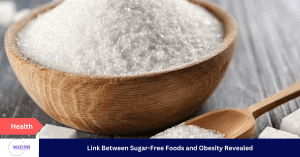Table of Contents
Toggle🍬 Sugar-Free But Not Risk-Free?
A new study suggests that low-calorie sweeteners, commonly found in diet sodas and ketchup, may be tricking the brain into craving more food, ultimately contributing to obesity.
🧠 How Sugar Substitutes Affect the Brain
🔬 Scientists at the University of Southern California discovered that calorie-free sweeteners activate brain regions responsible for hunger.
📌 These artificial sweeteners confuse the brain, making it expect calories that never arrive.
📌 Over time, this alters brain function, increasing cravings and the likelihood of overeating.
📊 Study Insights
🔎 Conducted on 75 participants
🔎 Effects were more pronounced in obese individuals
🔎 Dr. Kathleen Alana Page, lead researcher, explains that sweeteners create a “mismatch” in the brain’s response to food intake
🚨 Key Takeaways
✅ Sugar-free does NOT mean risk-free!
✅ Artificial sweeteners may contribute to weight gain rather than weight loss
✅ More research is needed, but limiting processed sugar substitutes could be beneficial
💡 Think twice before opting for sugar-free!
📢 Follow for more updates:
🔗 AtifMannanOfficial
🔗 Twitter






